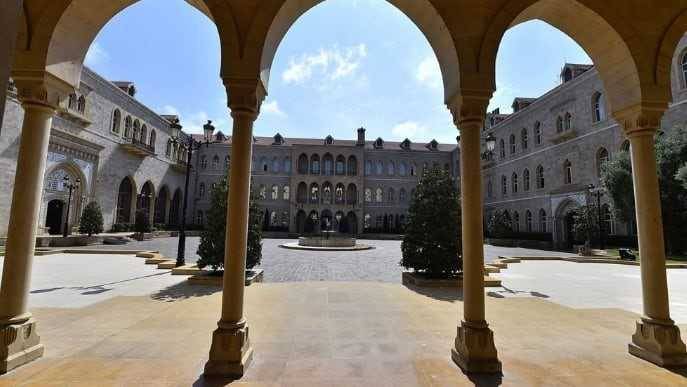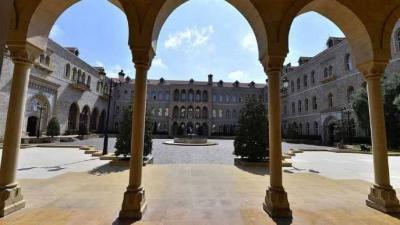Multiple proposals are being discussed among major politicians and countries involved in the Lebanese arena to agree on certain foundations that could constitute the required solution once the war in Gaza ends and the armed clashes on the southern front with Israel subside. These proposals include promptly addressing the presidential election crisis, electing a president for the republic first, immediately forming a new government, and starting to approach and resolve crises in economic, financial, and daily life aspects, as well as reviving the state and its institutions in general, as reported by "Al-Liwaa".
The current proposals aiming to resolve the Lebanese crisis remain subject to consultation and exchange of ideas and viewpoints, with a focus on the stances of all major political parties concerned with the solution and incorporating their remarks, ideas, and concerns to enhance and develop the proposal, so that it is comprehensive and viable for success in all its provisions.
The parties preparing the proposed solution approach their task from two essential points. The first is that they should not wait for the completion of the war being waged by Israel against the Gaza Strip, which may last longer than expected or not come to an end soon, but it will surely end one day. It is crucial to capitalize on the current time to prepare an initiative in consultation with various parties and countries interested in helping Lebanon resolve the crisis arising from the disruption of the presidential election, in alignment with the regional and international understandings resulting from the Gaza War and its outcomes. These outcomes could lead to a two-state solution, or if this demand is ignored, Israel may continue to dilute and overlook the legitimate rights of the Palestinian people, which could result in the continuation of the ongoing conflict in the region and its negative repercussions on Lebanon and neighboring countries to occupied Palestine.
The parties preparing the initiative fear that the expected agreements following the Gaza war could come at the expense of Lebanon's sovereignty and independence if the internally escalating crisis is not resolved and the sharp political divide and disagreements regarding the election of a president and other matters continue. The second critical point is that the initiative must address the reality from all aspects and ultimately gain the approval and support of all parties and be feasible for implementation on the ground, rather than being imposed, as this would ultimately lead to its failure, whereas success is desired.
It is noteworthy that the proposed formulas of both initiatives currently being circulated include a comprehensive package of measures, starting from the agreements that will take place in the south to end the ongoing clashes between Hezbollah and Israeli occupation forces, the election of a new president, the formation and composition of a new government, its operational mechanism to resolve crises, and the commitment of the concerned countries to sponsor the success of the initiative by assisting Lebanon in overcoming its various crises and issues, as well as contributing to the reconstruction in the south.
The ideas circulating within the first initiative proposal suggest that if the presidential candidate is affiliated with the Shiite duo and its allies, the new prime minister should be appointed by the opposition in all its components to achieve a balance between the two sides in the political power structure. Although this proposal, conveyed to the political parties, is under discussion and reservations as it does not form the desired formula, as there are fears of a return to previous political clashes between the president and the prime minister and the division among ministers between the two leaders, potentially resulting in governmental paralysis, adversely affecting the management of state affairs and resolving significant issues awaiting the new term and government. Proponents of this proposal assert that it could succeed if the next president has a good relationship with the prime minister chosen by the opposition before the presidential elections, even if both are on opposite political sides.
The second and more circulated proposal, according to "Al-Liwaa", involves a prior and mutual agreement on the names of the next president and prime minister, the composition of the government, and its ministerial statement, along with how to achieve the presidential entitlement first. Both proposed formulas remain in a back-and-forth process, with visits from ambassadors of the quintet committee to gauge opinions and test sentiments regarding them, as these countries are entrusted with their preparation and ensuring the implementation of their provisions, while visits by some deputies to Qatar fall within this mission.




